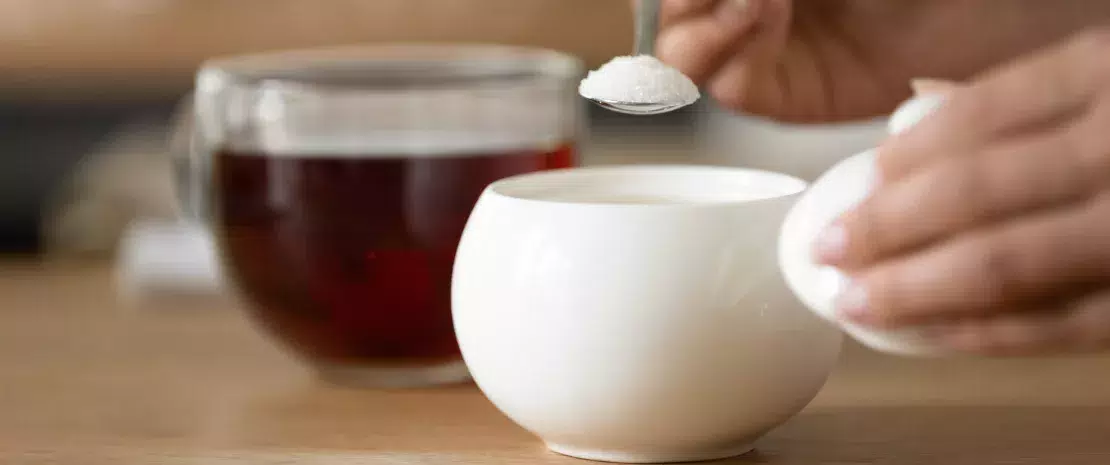Sweeteners: microbiota and blood glucose disruptors
A randomized controlled trial has found that the intestinal and oral microbiota is affected by sweeteners. More importantly, it found metabolic changes capable of disrupting the glycemic response.
Lay public section
Find here your dedicated section
Sources
This article is based on scientific information

About this article
It’s a well-known dietary trick: avoid weight gain by replacing sugar in our diet with non-nutritive sweeteners (NNS). Although usually considered risk-free, previous studies in mice have found that these ingredients could disrupt the intestinal microbiota and glycemic response. The same team this time explored the effects of NNS in humans using a randomized controlled trial of 120 healthy adults divided into six groups. Four groups were administered sachets containing, respectively, sucralose, saccharine, aspartame, or stevia, all at (sidenote: The acceptable daily intake, or ADI, is the estimated quantity of a substance in food or drinking water that can be ingested daily over a lifetime with no appreciable health risk. ) for these substances. Because the sweeteners contained glucose (vehicle ingredient), a fifth group was given sachets of glucose (glucose control) and a sixth received no supplement at all (no supplement).
25.1% of children and 41.4% of adults in the U.S. consumed NNS between 2009 and 2011, a rise on previous figures.
Sweeteners modify the microbiota and its functions...
Sequencing (shotgun) found that the four sweeteners caused specific changes (i.e., specific to each NNS) in the composition and/or metabolic function of the intestinal microbiota and oral microbiota. The most marked effect on intestinal microbiota was observed in the sucralose group. However, only sucralose and saccharine had a significant effect on glucose tolerance, with an increase in glycemia in both groups.
...with possible repercussions for the glycemic response
The changes seen in the intestinal microbiota, its functions, and the circulating metabolites mediated by the various NNS were correlated with the participants’ glycemic response. To determine whether these changes were the cause of the glycemic disruption, the researchers transplanted into (sidenote: Germ-free mice mice that have no microbes at all, raised in sterile conditions. ) the intestinal microbiota of selected individuals from the four test groups: those whose glycemic response was most affected (top responders) and least affected (bottom responders) by the NNS. The glycemic responses observed in the mice reflected the observations in the respective human donors, thus corroborating the causal hypothesis.
A person-specific, microbiota-dependent response to NNS
Finally, the researchers showed that the intestinal microbiota of the top vs. bottom responders evolved differently during exposure to the various NNS, possibly due to differences in baseline status. This led the researchers to compare the microbiota to a center of reactivity or adaptation that conditions physiological response to sweeteners, with effects only in certain individuals with a specific microbiota.







